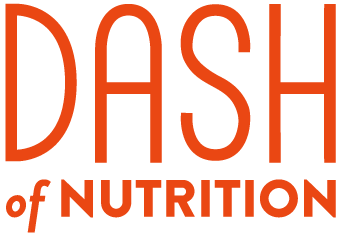Foods That Support Learning and Mood
Why What You Eat Affects How You Think and Feel
As the back-to-school season continues, many families are shifting from summer mode to more structured routines. Along with new schedules and homework, this time of year is a great opportunity to look at how nutrition can support energy, focus, and mood for both kids and adults. What we eat plays a direct role in how we feel and function. The brain requires consistent fuel to stay alert, process information, and regulate emotions. The good news is that even small, mindful changes in our meals and snacks can make a big difference in how we learn, concentrate, and cope with daily challenges.
Our last blog highlighted quick breakfasts, ADHD-friendly lunch strategies, and nutrient-dense snacks for keiki. Here, we’ll explore the ‘why’ behind those tips and dive deeper into the nutrients and habits that support brain power and emotional balance.
The Brain-Food Connection: How Nutrition Influences Learning and Mood
The brain is a highly active organ that depends on a steady supply of glucose and nutrients to function well. When we fuel our bodies with balanced meals, we help stabilize blood sugar levels, which leads to better attention, fewer mood swings, and more consistent energy.
Key nutrients play a role in producing neurotransmitters, the chemical messengers that influence our mood, motivation, and mental clarity. For example, serotonin helps us feel calm and focused, while dopamine supports motivation and pleasure. What we eat affects how efficiently these neurotransmitters are made.
Emerging research also shows the gut-brain connection is important. A healthy gut, supported by fiber and probiotics, can positively influence mood and cognition. Eating a variety of whole foods benefits not just digestion, but also our mental well-being.
Focus-Friendly Nutrients to Include in Meals
Certain nutrients are especially helpful when it comes to supporting concentration, learning, and emotional regulation. Here are a few to prioritize:
Omega-3 Fatty Acids Found in fatty fish like salmon, flaxseeds, chia seeds, and walnuts. Omega-3s are essential for brain development and function. Try a salmon poke bowl or add chia seeds to smoothies.
Protein Needed for neurotransmitter production. Protein helps regulate appetite and maintain focus. Eggs, tofu, beans, chicken, and even Greek yogurt are great options.
Iron and Zinc These minerals support cognitive performance and memory. Iron is especially important for growing children and menstruating individuals. Include foods like lean meats, edamame, and pumpkin seeds.
B Vitamins These support energy production and nervous system health. Leafy greens, eggs, whole grains, and legumes are all great sources.
Magnesium Known for its calming effect. Magnesium supports mood stability. You can find it in foods like bananas, avocado, and nuts.
Balanced Eating Patterns for Better Energy and Attention
What you eat is important, but when you eat also matters. Skipping meals or going too long without a snack can lead to energy crashes, poor concentration, and irritability. A good rule of thumb is to eat every 3 to 4 hours and build meals that include a mix of protein, fiber, and healthy fats.
For those with ADHD, this structure is even more important. Minimizing added sugars, focusing on high-protein foods, and having snacks ready to go can make the day run more smoothly. You can find some recommendations for ADHD-friendly lunch and breakfast options for busy families in our last blog here.
Smart Snacks for School, Work, and Homework Time
Snacks can make or break a day when it comes to maintaining focus and energy. The best ones are simple, satisfying, and contain a mix of nutrients to help avoid blood sugar spikes and dips.
Here are some brain-friendly snack ideas using local favorites and pantry staples:
Edamame with sliced fruit
Greek yogurt with granola and berries
Trail mix with macadamia nuts and dried mango
Carrot sticks with hummus
Mini musubi with brown rice and scrambled egg
These snacks are quick to prep and great for both keiki and adults powering through a workday.
Hydration and Brain Function
Dehydration can lead to headaches, fatigue, and trouble concentrating. In Hawaii’s warm climate, staying hydrated is especially important for overall health and brain function.
Water is always the best choice, but herbal teas, coconut water, and water-rich fruits like watermelon or oranges also count toward your fluid intake. Make it easy by carrying a reusable water bottle throughout the day and encouraging kids to take sips often, especially after physical activity. Check out ways to stay hydrated in Hawaii’s heat.
Lifestyle Habits That Support Focus and Mood
Good nutrition works even better when paired with other healthy habits. Consistent sleep is crucial for memory and emotional regulation. Aim for 8 to 10 hours for keiki and at least 7 to 9 for adults.
Regular movement, especially outdoor play or walks, can reduce stress and improve attention. Encourage screen breaks, stretch sessions, or even short family walks after dinner.
Practice mindful eating by slowing down to enjoy your meals and being present during snack time to help prevent overeating and boost satisfaction.
Fueling the Mind for Success
Whether you’re supporting a child through the school year or trying to feel more focused at work, nutrition is a powerful tool. By choosing meals and snacks that are rich in key nutrients, keeping hydrated, and building supportive daily routines, you can improve both focus and mood.
Ready to take the next step? Book a consultation to personalize your nutrition plan. Let’s fuel your brain and body to thrive this school year and beyond!
Resources:
Harvard Health Publishing 'Nutritional Psychiatry: Your Brain on Food’
Harvard Health Publishing ‘Foods Linked to Better Brainpower’

